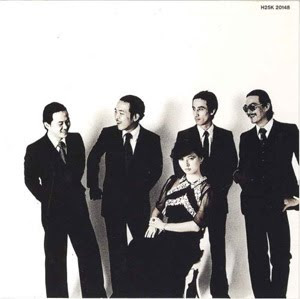"Japanese acid-folk singer, poet, author, artist and racing tipster,
active in the Japanese music scene since the early seventies.
Often described as a “screaming philosopher” due to his
idiosyncratic singing style. Whether screaming his lungs out
while thrashing his guitar within an inch of its life (his
legendarily wild performances frequently end up with all
strings snapped during a single song), creating gorgeously
romantic and limpid tone-scapes, Tomokawa never remains
any less than himself. He walks a path of untutored intelligence,
piercing sensitivity, and fully exorcised passions all too rare
in the shallow husk of today’s debased world."
Discogs
[studio albums]
1975 - Finally, The First Album
1976 - A Natural Voice
1977 - Senbazuru Wo Kuchi Ni Kuwaeta Hibi
1978 - Poems That Won’t Stop Crying From Within Me
1980 - Within the Country of Falling Cherry Blossoms
1981 - The Sea Is Silent, The Voice’s Soul Is Suffering
1986 - Beauty Without Mercy
1994 - Fault Of Flowers
1994 - Playing with Phantoms
1995 - Dance A Bonodori Alone
1996 - Fat in the Morning Light
1998 - Day by Day Dreams Die With Blithe
1998 - The Process of Stars
1999 - Sky Fish
2000 - Red Polyanthus
2001 - The Eyes of Elise
2002 - A Blow By Kenshin
2003 - Nakahara Chuya Sakuhinnshu ['78 re-interpretation]
2008 - Blue Water, Red Water
2009 - A Bumpkin’s Empty Bravado
[live albums]
1979 - A Dog - Live in Akita
1995 - GOEN: Live In Nihon Seinenkan
1995 - Shibuya Apia Document
2005 - Live 2005 Osaka Banana Hall
[compilation album]
Itsuka, Toku O Miteita
[extra songs]
Can’t Comprehend the Meaning Behind these Emotions
The Spring that Never Comes
Download




















